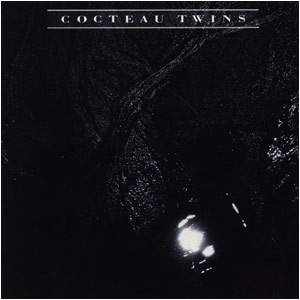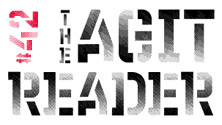
The Pink Opaque
4AD, 1985
If I remember correctly, the first time I heard The Pink Opaque, the seminal 1985 compendium of the Cocteau Twins’ greatest sides up until that point in time, was when I received a cassette copy as a birthday present from my then-girlfriend. I was still absorbed in the hardcore punk that fueled my budding adolescence, but she (no doubt an indication of girls maturing faster than boys) had developed more sophisticated tastes. Still, from the opening slow build of “The Spangle Maker,” I was hooked. Even that song’s generally sparse beginnings exhibited a beguiling swirl of ethereal pop and tempestuous guitar haze. Of course, the band’s allure also stemmed from Elizabeth Frazier’s otherworldly intonations. On that leadoff track she murmurs about droplets of some sort, but it’s little matter. It’s not so much what she sings, but the way she sings it—as she sings everything—in a vespertine voice seemingly culled from the heavens to accompany this music.
The Cocteaus created many great records, but The Pink Opaque shows where their strengths truly lay. At their peak, the band could distill a wealth of emotion into one small moment: obtuse lyricism, a squall of guitars and the divinity of Frazier’s voice combining into a four-minute song of amaranthine quality. (That they exhibited a proclivity towards EPs was also indicative of just this.) “Pearly-Dewdrops’ Drops,” perhaps the band’s closest thing to a hit, is a perfect example, a repeating refrain and sparkling guitar hooks conjuring vague romantic notions. “Aikea-Guinea” works in much the same way, but with a minor chord juxtaposed with Frazier’s crisscrossed ambrosial lines, the end result is a bit more saddening.
“Lorelei,” a track taken from Treasure, remains another high among highs. Here, a churn of ebullient guitar sparks off glinted keyboards and Frazier’s vocals, which are at turns hiccuped and shrill. One gets the feeling—and seeing the band live made this more evident—that Robyn Guthrie’s guitar was purposefully tempered, but otherwise was a gale of gleeful dissonance. Brought to the forefront, the band may have had more of an obvious velocity, but contained as it was, the fury was waylaid by disarming beauty. He’s given more rein on “Musette and Drums,” but Frazier’s voice is never obfuscated, creating an alarming dichotomy.
The Cocteau Twins are remembered mainly by Frazier’s indecipherable screeds and the shimmery sound they made. The latter, especially, seems to have had an influence on every band with a foggy notion since. But, as this record shows, their oeuvre was impossibly complex. In lesser hands such ethereal ideas would become something Enya-like. The Cocteau Twins were an anomaly in the greatest sense, a band never letting any of the many powers they wielded become more prominent than the others. As The Pink Opaque makes clear, they were a band too intuitive to ever be so clumsy.
Stephen Slaybaugh
PAST PERFECTS
Red Red Meat, Bunny Gets Paid
Chris Darrow, Chris Darrow and Under My Disguise
Beth Orton, Trailer Park
Various Artists, Downriver Revival
Isaac Hayes, Black Moses and Juicy Fruit (Disco Freak)
Death, ...For the Whole World to See
The Notorious B.I.G. Ready to Die
Zero Boys, Vicious Circle and History Of
Volcano Suns, The Bright Orange Years and All Night Lotus Party
Miles Davis, Kind of Blue
Swervedriver, Raise and Mezcal Head
Flipper, Generic, Gone Fishin', Public Flipper Limited, and Sex Bomb Baby!
Pavement, Brighten the Corners: Nicene Creed Edition
The Grifters, Ain't My Lookout
